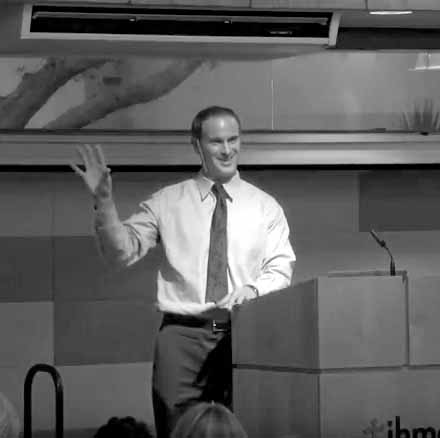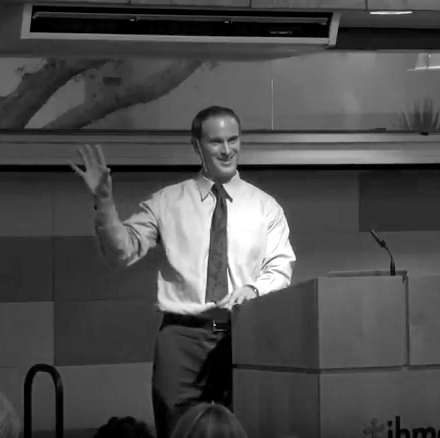Coffee and Autophagy: A Powerful Combination for Our Metabolism
Updated by Stephen Anton PhD on March, 25th 2022

Coffee is one of the most popular beverages in the world; it not only helps you feel more energized, burn fat and improve physical performance, but daily consumption lowers your risk of type 2 diabetes, heart failure, and certain types of cancer (1,2,3).
Even more exciting, a very large recent study revealed that individuals who drink at least 3–4 cups of coffee a day had a reduced risk of mortality, heart disease, cerebrovascular disease, and respiratory disease (4).
Coffee has also been associated with a reduced risk of metabolic syndrome and obesity.
How Are Coffee and Autophagy Connected?
There appears to be a common mechanism responsible for the many health benefits of coffee, unknown until recently.
And that mechanism is that coffee can greatly enhance the body’s waste removal process, also known as autophagy.
However, before discussing how coffee and its components work to stimulate metabolism and activate autophagy, let’s see how the process of autophagy works in the body.
What Is Autophagy?
In many ways, the body’s autophagy process resembles the process you use to take out the trash in the morning.
First, you put trash or waste in a trash bag, and when it is filled up you take it outside where it is eventually taken away.
In a very similar manner, your body traps waste products in little bags within your cells and then takes these waste bags into the bloodstream to be removed.
Why Is Autophagy Important?
Autophagy is critical to your health.
Indeed, one of the main reasons people become sick is related to low levels of autophagy: cells become full of waste products and the body becomes “toxic.”
When this happens, some sort of illness typically occurs that shuts down your appetite, so that your cells can use the extra energy available to remove wastes and create cleaner cells.
Why Does Coffee Enhance Autophagy?
First, there is only one type of coffee that can enhance autophagy, and that is black coffee, preferably organic or with as few pesticides as possible.
This is because any coffee that contains calories from cream, sugar, or butter, will stop the autophagy process (unless less than 10 calories) and shift the body from waste removal to the digestive process.
There are a number of mechanisms through which black coffee can enhance autophagy, but I believe the primary one is by activating and amplifying our body’s metabolic switch (5).
This is the natural switch our bodies use to produce energy from our body fat when energy from food is not available.
It is also known as the glucose to ketone switch.
How Does Coffee Enhance Autophagy?
Caffeine is probably the first thing that comes to mind when you think about coffee.
But coffee also contains antioxidants and other active substances that can impact your metabolic processes and protect you against disease.
But the benefits do not stop there!
Coffee also contains other polyphenols and chlorogenic acids, which work together with caffeine to stimulate fat burning.
A few additional compounds, such as trigonelline, cafestol and kahweol have also been shown to activate fat metabolism, by affecting specific nutrient-sensing pathways and enzymes which play a role in cellular energy balance (7,8).
Autophagy and Coffee Conclusion
In summary, coffee has a number of impressive health benefits.
When consumed while fasting, coffee can help activate the body’s metabolic switch, enhancing our bodies’ health promoting process of autophagy.
So, feel free to drink up – just remember not to consume too late in the day as caffeine could affect sleep in caffeine-sensitive individuals.
Coffee and Autophagy: A Powerful Combination for Our Metabolism
Updated by Stephen Anton PhD on March, 25th 2022

Coffee is one of the most popular beverages in the world; it not only helps you feel more energized, burn fat and improve physical performance, but daily consumption lowers your risk of type 2 diabetes, heart failure, and certain types of cancer (1,2,3).
Even more exciting, a very large recent study revealed that individuals who drink at least 3–4 cups of coffee a day had a reduced risk of mortality, heart disease, cerebrovascular disease, and respiratory disease (4).
Coffee has also been associated with a reduced risk of metabolic syndrome and obesity.
How Are Autophagy and Coffee Connected?
There appears to be a common mechanism responsible for the many health benefits of coffee, unknown until recently.
And that mechanism is that coffee can greatly enhance the body’s waste removal process, also known as autophagy.
However, before discussing how coffee and its components work to stimulate metabolism and activate autophagy, let’s see how the process of autophagy works in the body.
What Is Autophagy?
In many ways, the body’s autophagy process resembles the process you use to take out the trash in the morning.
First, you put trash or waste in a trash bag, and when it is filled up you take it outside where it is eventually taken away.
In a very similar manner, your body traps waste products in little bags within your cells and then takes these waste bags into the bloodstream to be removed.
Why Is Autophagy Important?
Autophagy is critical to your health.
Indeed, one of the main reasons people become sick is related to low levels of autophagy: cells become full of waste products and the body becomes “toxic.”
When this happens, some sort of illness typically occurs that shuts down your appetite, so that your cells can use the extra energy available to remove wastes and create cleaner cells.
Why Does Coffee Enhance Autophagy?
First, there is only one type of coffee that can enhance autophagy, and that is black coffee, preferably organic or with as few pesticides as possible.
This is because any coffee that contains calories from cream, sugar, or butter, will stop the autophagy process (unless less than 10 calories) and shift the body from waste removal to the digestive process.
There are a number of mechanisms through which black coffee can enhance autophagy, but I believe the primary one is by activating and amplifying our body’s metabolic switch (5).
This is the natural switch our bodies use to produce energy from our body fat when energy from food is not available.
It is also known as the glucose to ketone switch.
How Does Coffee Enhance Autophagy?
Caffeine is probably the first thing that comes to mind when you think about coffee.
But coffee also contains antioxidants and other active substances that can impact your metabolic processes and protect you against disease.
But the benefits do not stop there!
Coffee also contains other polyphenols and chlorogenic acids, which work together with caffeine to stimulate fat burning.
A few additional compounds, such as trigonelline, cafestol and kahweol have also been shown to activate fat metabolism, by affecting specific nutrient-sensing pathways and enzymes which play a role in cellular energy balance (7,8).
Autophagy and Coffee Conclusion
In summary, coffee has a number of impressive health benefits.
When consumed while fasting, coffee can help activate the body’s metabolic switch, enhancing our bodies’ health promoting process of autophagy.
So, feel free to drink up – just remember not to consume too late in the day as caffeine could affect sleep in caffeine-sensitive individuals.

Get the Beginner’s Guide to Intermittent Fasting
Take advantage of this FREE PDF and learn the basics of intermittent fasting.

Get the Beginner’s Guide to Intermittent Fasting
Take advantage of this 100% free PDF and learn the basics of intermittent fasting.

Get the Beginner’s Guide to Intermittent Fasting
Take advantage of this FREE PDF and learn the basics of intermittent fasting.









